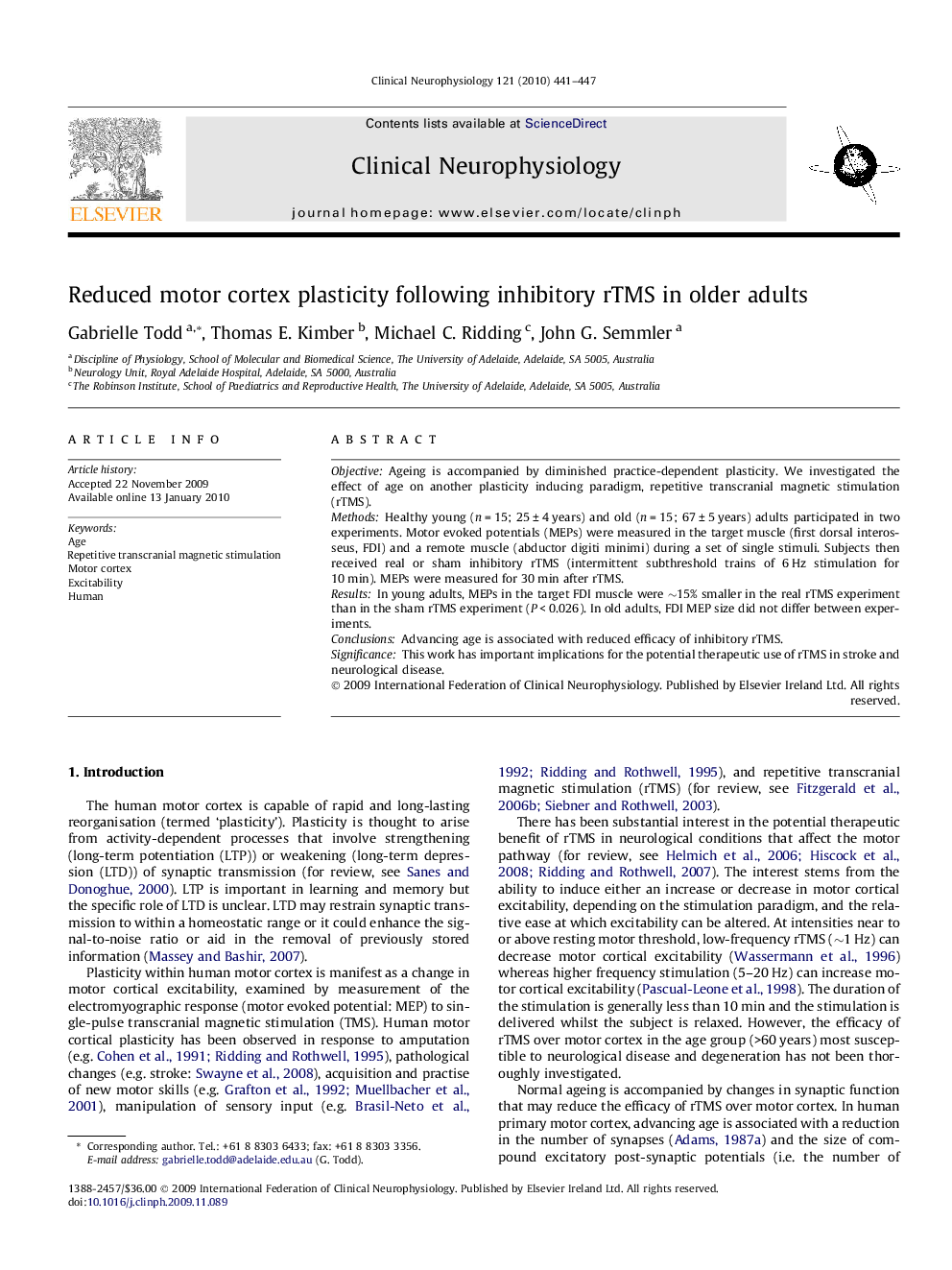| Article ID | Journal | Published Year | Pages | File Type |
|---|---|---|---|---|
| 3045162 | Clinical Neurophysiology | 2010 | 7 Pages |
ObjectiveAgeing is accompanied by diminished practice-dependent plasticity. We investigated the effect of age on another plasticity inducing paradigm, repetitive transcranial magnetic stimulation (rTMS).MethodsHealthy young (n = 15; 25 ± 4 years) and old (n = 15; 67 ± 5 years) adults participated in two experiments. Motor evoked potentials (MEPs) were measured in the target muscle (first dorsal interosseus, FDI) and a remote muscle (abductor digiti minimi) during a set of single stimuli. Subjects then received real or sham inhibitory rTMS (intermittent subthreshold trains of 6 Hz stimulation for 10 min). MEPs were measured for 30 min after rTMS.ResultsIn young adults, MEPs in the target FDI muscle were ∼15% smaller in the real rTMS experiment than in the sham rTMS experiment (P < 0.026). In old adults, FDI MEP size did not differ between experiments.ConclusionsAdvancing age is associated with reduced efficacy of inhibitory rTMS.SignificanceThis work has important implications for the potential therapeutic use of rTMS in stroke and neurological disease.
